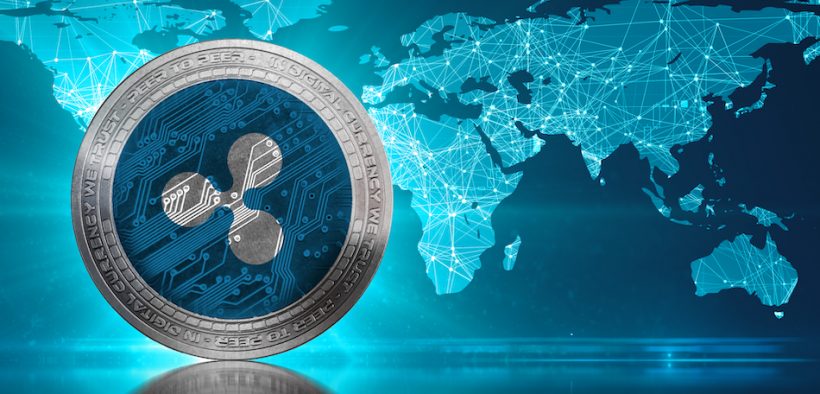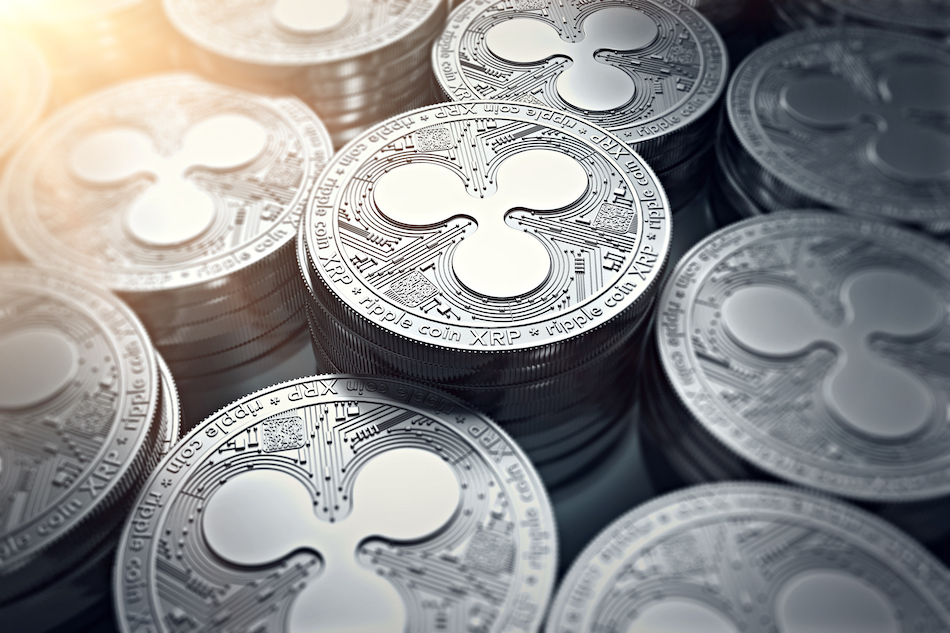Not Just a Ripple in the Market
Share

We sit down with Graham Bright Head – Compliance and Operations to discuss the successes and the forwards trajectory of Euro Exim Bank’s innovation into new markets.
CEO Insight: Euro Exim Bank has joined Ripple. With emerging competition in the blockchain market from the likes of SWIFT and Ethereum, why have you chosen to side with Ripple?
Graham Bright: Looking at relative merits of seemingly competitive systems and strategies, it is important to compare and contrast the service and product offerings you need in more detail. In our case, we were looking to find a trusted market leader for real-time borderless frictionless payments with a reliable, fast network technology, able to handle not only fiat currency but extending services to include cryptocurrency. We chose Ripple, as operator of RippleNet and owner of the digital asset, XRP.
“Funds reach an ultimate destination and are credited to a beneficiary account in real-time, with the benefits of time, low cost, immutability and transparency with full audit trail.”
CEO Insight: How do you envisage products such as xCurrent and xRapid (newly renamed as On-Demand Liquidity – ODL) resolving the sticking points when it comes to cross-border trade and accessing trade finance to import or exports goods and services? Can you talk about how you plan to strengthen use of blockchain technology?
GB: The barriers to traditional world trade in some of the fastest growing economies are well known. For example, costly and uncompetitive access to funds, lack of trust and confidence and lack of business appetite and liquidity in small local banks, corruption, lack of knowledge in dealing with complex instruments and so the list goes on.
However, we have found using xCurrent firstly for payments, and ODL solving the liquidity issue by switching from local currency to XRP and paying out in local currency at the receiver end, not only resolves the time issue of delivery and authenticity, but elegantly solves the issue of switching into and out of USD or EUR, which would normally subject a smaller customer in a higher risk jurisdiction to high cost and often wild currency fluctuation.
CEO Insight: Money transmission between countries can take several days, especially if multiple intermediary correspondent banks are involved. Euro Exim Bank works with buyers in 80+ countries, with goods frequently changing ownership as they go between locations, requiring payment to be made in real time. Ripple shortens the process to a matter of seconds using something similar to blockchain. Can you explain this and how it differs from other cryptocurrency transactions?
GB: Ripple real-time technology, regardless of the underlying blockchain/DLT allows transactions to flow without dependency on traditional correspondent bank operations and the time, complexity and cost they involve. This is significant for Africa as cashflow challenged companies no longer need to wait days for their money to traverse 3 or 4 correspondent banks with associated funding and dispersal from nostro accounts. Funds reach an ultimate destination and are credited to a beneficiary account in real-time, with the benefits of time, low cost, immutability and transparency with full audit trail.
 CEO Insight: GDP in East Africa is expected to expand 5.9% in 2019 and 6.1% in 2020, making it the fastest-growing region on the continent. What particularly excites you about the East African region and how can new technologies help achieve the area’s vision of continued economic growth? Can you provide a short case study of either a regional or international import/export transaction?
CEO Insight: GDP in East Africa is expected to expand 5.9% in 2019 and 6.1% in 2020, making it the fastest-growing region on the continent. What particularly excites you about the East African region and how can new technologies help achieve the area’s vision of continued economic growth? Can you provide a short case study of either a regional or international import/export transaction?
GB: East Africa is symptomatic of the growth across the continent, and will contribute 50% of the global economy in Africa by 2050. By unlocking the complexity of document processes and authenticity, enabling cryptocurrency-based settlement and liquidity and embracing blockchain technology, banks and financial institutions can deliver a far improved client experience. In turn, this will promote business and wealth creation in economies once disadvantaged from competing effectively on the international trade stage.
Case Study:
A supermarket group in Kenya wish to pay suppliers in Africa and across the globe, but do not wish to continually buy USD or other fluctuating currencies from a local bank. Having to do so affects cash flow and access to liquidity where their order size can be in the tens of thousands. The RippleNet solution allows immediate access to unlimited liquidity using the
XRP digital asset, with certainty and immutability of transfer and settlement. This model may be easily replicated for multiple corporates, not only in Kenya but across the continent, providing consistency, frequency and value.
CEO Insight: The East African region is both fraught with challenges and full of opportunities. What challenges do you expect to face at a time where instant, real time movement of funds and visibility is more crucial than ever?
GB: Trust and confidence have always been issues. In terms of currency, most western nations want dollars, whereas African nations often trading with near neighbours rely on local currency. Agricultural economies are becoming more industrialised, with greater financial inclusion, more bank accounts, banked populations and electronic payments methods. The technology uptake and faster movement of clean money is enabling firms to better compete in global markets. Ultimately, the undisputed growth of the continent as the major supplier to meet the unyielding demand of the powerhouse economies of Asia, demanding foreign raw materials for re-manufacture and re-export, sees no signs of abating.
“The technology uptake and faster movement of clean money is enabling firms to better compete in global markets.”
CEO Insight: Euro Exim Bank was the first regulated bank to officially adopt and implement the Ripple-powered ODL service, successfully integrating the technology within a number of weeks. The bank has also leveraged their experience in trade finance solutions for global corporates and fintech’s, to offer new payment channels and ways to source liquidity. Working collaboratively with Ripple and selected counterparts, Euro Exim Bank has designed, tested and is implementing both xCurrent and ODL. How have your customers responded?
GB: As always, being a pioneer has raised challenges, but our vision was always to use the best and most appropriate systems for us to compete and win in our focus business area, namely facilitating global trade. Coupled with a strong IT capability, our ODL integration process was the fastest to date, and we took a phased approach to fully test in established payment corridors before we launched commercially. And, that trial and testing time was crucial to ramping up volume, resulting in multiple daily on-demand liquidity transactions.
Our clients have been very positive. Whilst they are interested in but not necessarily knowledgeable about the enabling blockchain/DLT technology, the mechanics of how it works for them are academic. More important are the deliverables, namely speed, low cost, trust and auditability delivered in our offering.
CEO Insight: The Smart Banking Market size is expected to grow at a CAGR of +8% during the forecast period 2019-2025. What trends do you see emerging and what is next for Euro Exim Bank?
GB: Based on current thinking and investment, smart banking, rapid account switching and inter-operability between systems will, in our opinion, be the focus for financial institutions over the next 5 years.
However, the coming years will be challenging, as political instability across Europe, changing party and country leaders and policy, threats of trade wars and wildly fluctuating exchange rates, more nationalism, patriotism, isolationism and desires to negotiate own trade agreements affect confidence, investment and growth potential.
And, consider the possible political breakup of the European Union, namely an exodus from the Euro, return to former currencies, complex revaluation and re-minting foreign exchange, re-building and maintaining multiple relationships, all in a world mired in more legislation and regulation.
Whilst the European doomsday scenario may be fantasy, we are preparing, protecting and futureproofing our operations to service more traditional cash and trade requirements, and positioning to meet the demands of future tech-savvy customers needing instruments and settlement in any currency (including crypto), time or place.
This also means extending our blockchain capabilities, not only in our trade platform but across all our merchant/card platforms and exchange offerings, leaving behind incumbent and legacy infrastructures, saving significant internal costs, and ultimately improving the customer journey, experience, loyalty and ultimately sustainable revenue.
For more information: www.euroeximbank.com

























